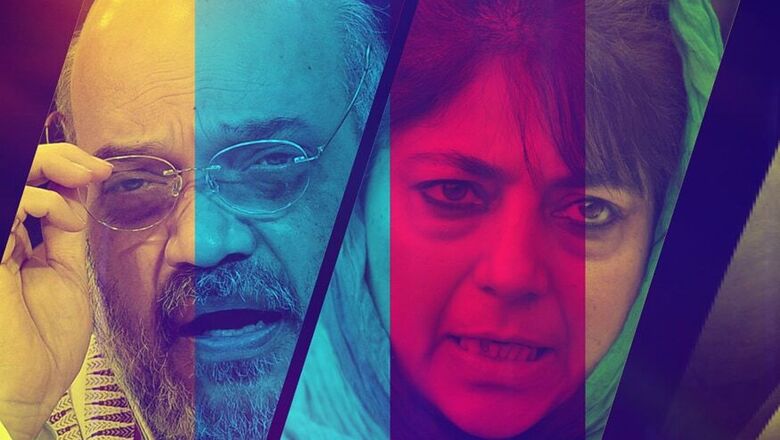
views
New Delhi: As a visible revolt stirs within the PDP and threatens to dethrone Mehbooba Mufti, speculations are rife about how it would affect the composition of the state assembly. News18 discusses the numbers, possibilities and the state’s anti-defection law.
The Jammu and Kashmir assembly has 87 members, which means the halfway mark — the number of MLAs any coalition has to secure in order to stake claim to form the government — is 44. We say coalition because as the state assembly stands today, no party has secured absolute majority yet.
The PDP is the largest party with 28 MLAs, followed by the BJP with 25 MLAs. National Conference and Congress have 15 and 12 MLAs each. Two MLAs belong to the Sajjad Lone-headed People's Conference, one to CPI(M), one to People’s Democratic Front, and the remaining three are independents.
The coalition that BJP pulled out of on June 19 was an alliance of the two biggest parties that emerged out of the 2014 assembly elections. The founder of PDP, Mufti Mohammed Sayeed, had described it as the meeting of “North Pole and South Pole”.
The Numbers
The BJP is the only party in J&K whose members, in the state leadership, have shown willingness to form the government. The other parties — National Conference and Congress — have privately and publicly refused the possibility of forging a coalition. Both the parties have been asking governor NN Vohra to dissolve the House and prepare the state for fresh elections.
Within 10 days of the BJP pulling out of the coalition, Kavinder Gupta, the former deputy chief minister of J&K, had said: “I don’t think a new government will be formed anytime soon. Uncertainties are there but we are working on something and people will get to know about it.” This had prompted opposition leader Omar Abdullah to level charges of horse-trading against the BJP.
Speaking to News18 on Tuesday, Gupta said, “In the coming days, I see dissatisfied MLAs not just from PDP, but also from Congress and National Conference, are likely to join forces and form a new front.”
Speculation of such a front of disgruntled MLAs from other parties has been doing the rounds ever since BJP general secretary Ram Madhav tweeted a photo of himself with some other BJP leaders at Sajjad Lone’s house.
The Possibilities
So how many MLAs would the BJP need if it is really serious about staking claim to form the next government in J&K?
The party needs 19 more MLAs to reach the halfway mark. But given the steady and visible support that it has been receiving from the People's Conference, this number could reduce by two — the number of sitting MLAs that People’s Conference has.
The BJP is unlikely to get support from any other party so the only chance for it to come to power is to secure most of these 17 MLAs from PDP’s rebel faction.
Speaking to News18, Abid Ansari, one of the rebel PDP MLAs, has claimed that there are enough rebels within to take over the party.
“There are two-and-a-half years remaining for this term of the assembly. Nobody would want to stay out of power for that long. That’s what we’re banking on,” a BJP MLA told News18 on condition of anonymity.
Though nobody can estimate the strength of rebel MLAs within the PDP, sources in BJP say they are hoping to make a big announcement after the conclusion of the Amarnath Yatra late in August.
Anti-Defection Law
According to the anti-defection law effective in the rest of the country, if less than one-third of the total elected representatives of a party defect or defy the party whip at a time, they are disqualified.
However, the state law is more stringent. According to the state anti-defection law, even if all the MLAs defy the party whip, they are liable to be disqualified. On defection of elected members of his party, the party whip can send a petition to the Speaker of the House for their disqualification. But this scenario may ultimately work out in the BJP’s favour, a constitutional expert told News18.
“I don’t think there will be any hindrance in government formation. If there are rebel MLAs of any party that decide to lend their support to the BJP, they can go ahead and form the government. What will then happen is that the matter will go to the Speaker and quasi judicial proceedings against the rebel members will begin. Now, as has happened several times in such cases, the Speaker can take months or even years to decide on this case, allowing such an interim government to complete its tenure,” said Subhash Kashyap, a noted constitutional expert.
The present Speaker of the House is BJP MLA and former deputy chief minister of the state Nirmal Singh.
The BJP pulled out of the coalition with the PDP on June 19. On June 20, the state came under Governor’s Rule. If no party or group of parties stake claim to form a government for the next six months, J&K will be placed under President’s Rule.











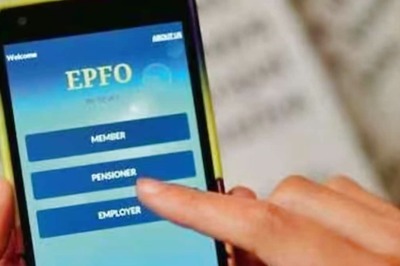


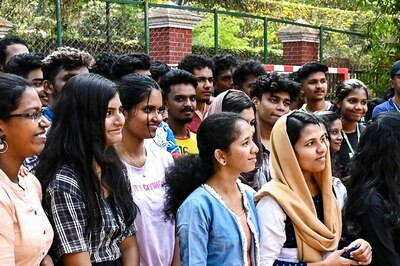

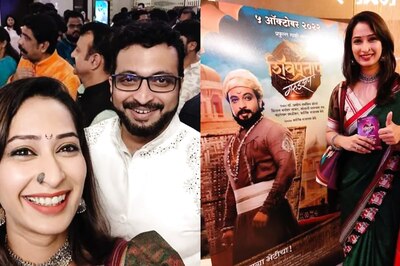

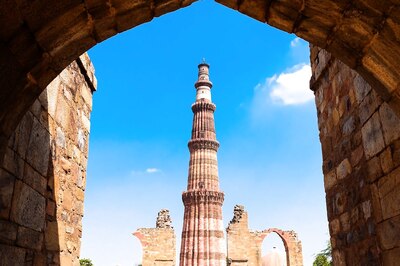
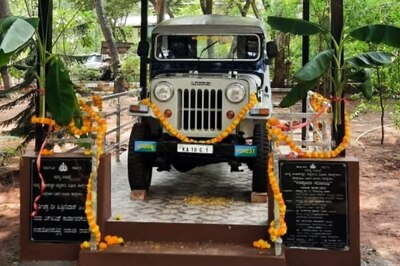
Comments
0 comment